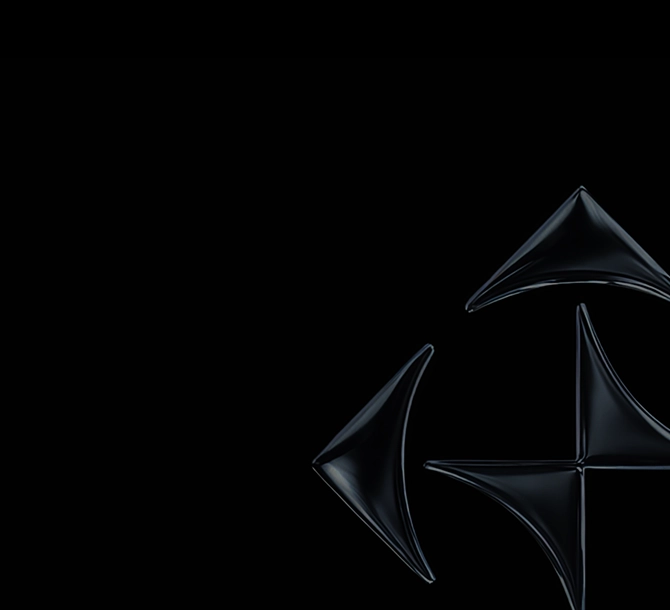Insights from Lush & Shopee on Fighting Counterfeits and Impersonation
How Beauty Brands Can Take Back Control on E-Commerce Marketplaces
The rise of e-commerce has been a boon for beauty brands, but it’s also a playground for counterfeiters. Unlike fashion, fake cosmetics are harder to detect, making enforcement an uphill battle.
In our latest MarqVision Webinar, “Marketplace IP Challenges & Progress: A Conversation Between Lush and Shopee,” Gabriela Felix Francisco (In-House Counsel for Cosmetic Warriors - owner of the LUSH brand), and the Shopee Brand Protection Team (Camille Licup, and Tianyu Shen), joined us to unpack the biggest brand protection challenges in beauty e-commerce and what’s working to fight back.
1. Strengthening Beauty Brand Protection Through Consumer Education and Proactive Enforcement
- The rise of counterfeit beauty products, along with the increasing shift toward online beauty purchases, presents challenges for both brands and consumers. However, enforcement efforts have not kept pace with this growing trend. Shopee’s data shows that 44% of the brands using its IP portal are beauty brands, but they only account for 14% of total reports. In contrast, fashion accounts for just 16% of brand owners in the portal, but are half of all reports. This disparity highlights the need for beauty brands to take a more proactive approach in protecting their intellectual property.
- Fake beauty products are more difficult to differentiate from the authentic versions. Unlike fashion, where counterfeits often have tell-tale signs such as using cheap materials, misspelled logos, and incorrect stitching and are sold at steep discounts, fake beauty products can look almost identical to real products–while being sold at similar prices–to the real ones, making detection difficult until a consumer experiences negative effects.
- This also makes many fake beauty brands harder to report via trademark enforcement. While fashion brands rely on trademarks for 95% of their reports, beauty brands only use them 70-80% of the time and typically take more creative, alternative approaches.
- By combining education with proactive enforcement, beauty brands can better safeguard their products, reputation, and customers.
2. The Rising Threat of Impersonation
- Even Lush’s legal team was fooled. Gabriela shared that Lush’s own team mistook a fake store for an official one because the counterfeiters used their logo, copyrighted images, and even called themselves an “Official” store. She shared that if she couldn’t tell the difference, she said, then what chance do consumers have?
- Lost sales to these fraudulent sites are just the start. When consumers unknowingly buy from fake stores, brands don’t just lose revenue, they also risk losing something even more valuable: trust. Just one bad experience with an expired, mishandled, or counterfeit product can tarnish your brand’s reputation. In today’s e-commerce landscape, protecting brand integrity isn’t optional; it’s essential. In fact, MarqVision’s latest report on counterfeit beauty products found that consumers have a rising expectation for protective measures when purchasing a product.
How Lush & Shopee fought back:
- Using Marq AI, MarqVision and Shopee worked together to identify and remove over 15 fraudulent Lush stores, effectively preventing the sale of counterfeit products on the marketplace.
- Ongoing monitoring ensures repeat offenders don’t reappear.
“Shopee was very responsive with the mediation of MarqVision,” says Gabriella. “And at this moment, we are all clean. But of course, we know this is a never-ending job, and we count on MarqVision to keep reporting and bringing these issues to us so we can keep enforcing and finding the best ways to deal with them together.”
3. “There’s Always an Angle”: Finding the Right Strategy to Take Down Counterfeiters
Traditional IP enforcement often falls short, especially with beauty products. Many beauty brands struggle to remove fakes as trademark laws typically do not apply once a product enters the market. This loophole allows fakes to circulate unchecked, putting brand reputation and consumer safety at risk.
According to Gabriela, ‘there’s always an angle’ that brands can take:
✅ Use copyright violations to report stolen product images & descriptions. MarqVision’s Image Vault feature was crucial in helping Lush register official brand images, providing clear proof of copyright ownership.
✅ Leverage cosmetic regulations. Lush removes fakes by proving that improper storage makes them unsafe.
✅ Tie enforcement to consumer protection laws. Highlighting health risks compels platforms like Shopee to act.
The best strategy? Don’t rely on just one. If one legal route doesn’t work, find another angle to shut down infringers. For the full story on how Gabriela's team found "the perfect angle" for their enforcement strategy, read our full case study here.
4. Shopee’s Brand Protection Playbook: What’s Changing in 2025
As the leading e-commerce platform in Southeast Asia and Taiwan, Shopee continues to enhance its ecosystem to foster a safer, more brand-friendly marketplace. Anticipating the rising challenges of counterfeiting and unauthorized sales, Shopee has made major strides in brand protection, rolling out AI-powered enforcement, enhancing seller verification, and implementing swift penalties against repeat offenders, to protect both brands and consumers. Here’s what’s changing in 2025:
- AI-powered enforcement: Shopee leverages over 80 brand-specific AI models to proactively detect and remove infringing listings, enhancing marketplace integrity.
- Stronger seller verification: With stricter Know Your Customer (KYC) policies, Shopee ensures sellers undergo rigorous vetting before they can operate on the platform.
- Faster penalties: Strengthening its repeat offender policy, Shopee increased enforcement actions, freezing 20% more infringing sellers in 2024 compared to 2023.
- Brand IP Portal: Continuous enhancements to the user experience equips brands with valuable insights, enabling them to prioritize enforcement efforts more efficiently and effectively.
5. AI-Powered Protection for Beauty Brands with MarqVision
Sage advice from Gabriella: “You can’t fight counterfeiting alone.” Brands face too many listings, too many platforms, and too many repeat offenders to manage enforcement manually.
With MarqVision, brands can:
✅ Bulk-detect fake listings across 1,500+ marketplaces
✅ Automate enforcement with AI-powered IP takedowns
✅ Monitor impersonation attempts in real time
✅Leverage data to uncover new enforcement strategies
If your brand is struggling with counterfeits or fake storefronts, it’s time to act. Book a demo with MarqVision today to learn how!
Stay up to date on the latest IP Protection content from MarqVision.
4 Enforcements a Week to 400: Scale Brand Safety with Marq AI

Don’t Just Find Counterfeits. Dismantle the Entire Network.

.png)
Discover the latest trends and challenges in IP protection

Take Control of Your Trademarks with MARQ Folio

Renew and Manage Your Trademarks Easily With MARQ Folio

We’re waiting to hear from you

See the best brand protection solution in action

Don’t let piracy steal your growth

Talk to us about your brand protection problems

.png)














